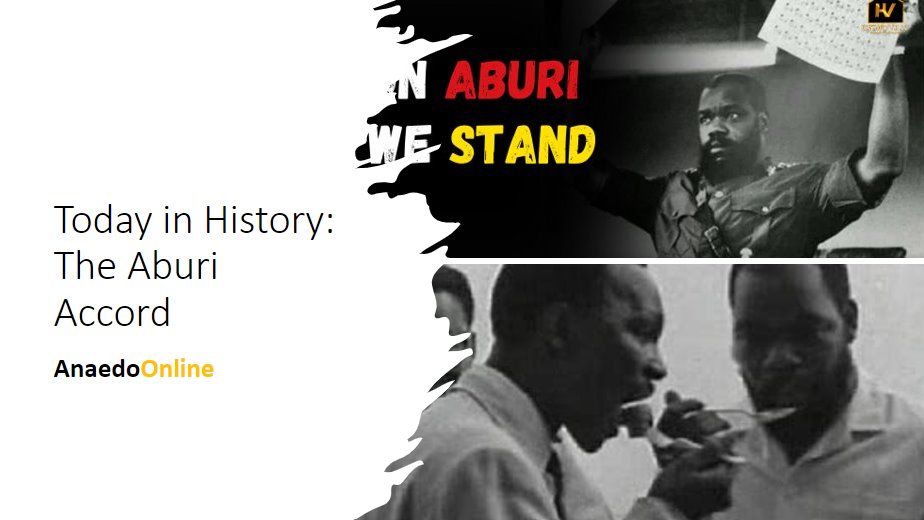The Aburi Accord stands as a momentous event in Nigerian history that sought to avert an impending civil war. Today in history, On January 4th-5th, 1967, the Federal Government of Nigeria and Eastern delegates convened in Aburi, Ghana, under the shadow of looming conflict. This historic meeting initially hailed as the last chance to prevent all-out war, would go on to shape the trajectory of Nigeria’s future.
As tensions escalated in Nigeria, with the specter of war looming large, the Aburi Accord emerged as a beacon of hope. The meeting, facilitated by Ghana’s Lt.-General J.A. Ankrah, brought together key figures, including Lt.-Col. Yakubu Gowon and the Eastern Region’s leader, Colonel Chukwuemeka Odumegwu-Ojukwu. The stakes were high, with the collective vow not to resort to force in resolving the crisis.
The choice of Aburi as the venue was significant, as it provided a neutral ground where the safety of the Eastern delegates, particularly Colonel Ojukwu, could be assured. The agenda encompassed vital issues such as the reorganization of the armed forces, constitutional arrangements, and the predicament of displaced persons within Nigeria.
Deciphering the Accord:
The Aburi Accord’s core resolutions centered on critical aspects of governance and decision-making. A law of collective responsibility was established, vesting powers of the Federal Military Government in the Supreme Military Council. Unanimous concurrence became imperative, emphasizing a commitment to collective decision-making. Additionally, the Head of the Federal Military Government was designated as the Commander-in-Chief of the Armed Forces of Nigeria.
The Aburi Conference’s agenda delved into the reorganization of the armed forces, constitutional arrangements, and the pressing issue of displaced persons within Nigeria. Delegates, including Lt.-Col. Odumegwu Ojukwu, Lt.-Col. Yakubu Gowon, and regional governors, gathered to navigate the intricate web of challenges facing the nation.
Breakdown and the March to Civil War:
The Aburi Accord was initially seen as a promising development, but it eventually fell apart, which marked a significant shift. The federal government created Decree No. 8 to embody the accord, but it led to various interpretations. Clauses that gave the Supreme Military Council more power caused disagreements, especially concerning the declaration of a state of emergency. Ojukwu’s absence from a crucial meeting worsened the situation, paving the way for the Nigerian Civil War, which started in July 1967.
In retrospect, the Aburi Accord, though unable to avert war, remains etched in Nigeria’s history. Its failure, leading to a protracted conflict, underscores the complexities and deep-seated issues that pervaded the nation at that time. The accord’s legacy endures as a testament to the challenges of navigating political intricacies and the delicate balance required to prevent the descent into armed conflict.
Conclusion: As we reflect on the events of Aburi, we recognize it as a pivotal chapter that unfolded on the brink of a national crisis. The echoes of that historic meeting reverberate through the corridors of time, reminding us of the delicate threads that bind nations and the challenges inherent in forging a united path forward.
Today in history, the Aburi Accord left an indelible mark on Nigeria’s journey, a mark that resonates with the complexities of governance, diplomacy, and the pursuit of peace in times of turmoil.
Post Disclaimer
The opinions, beliefs and viewpoints expressed by the author and forum participants on this website do not necessarily reflect the opinions, beliefs and viewpoints of Anaedo Online or official policies of the Anaedo Online.

